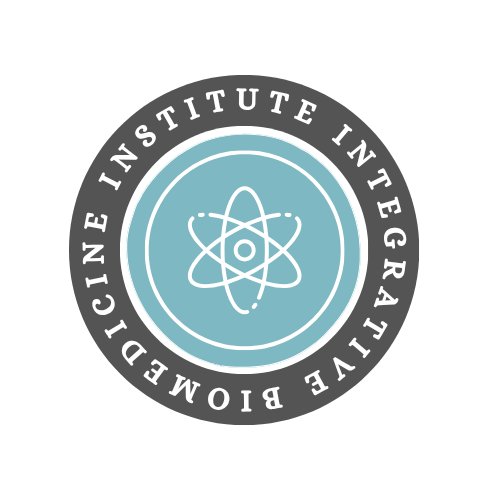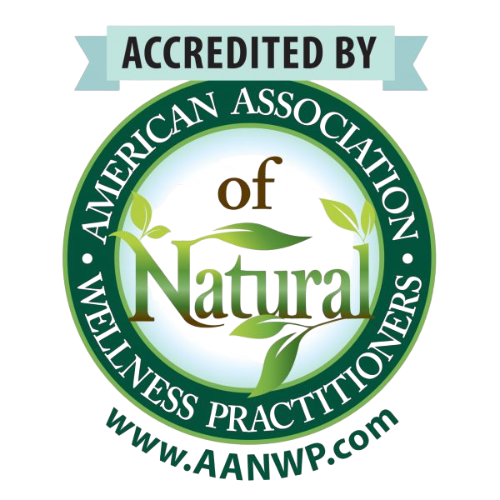Program Description
The Doctorate of Orthomolecular Health (D.O.H.) is a private, advanced certification program for practitioners, clinicians, educators, and health entrepreneurs seeking expertise in nutritional therapeutics grounded in molecular biochemistry. Rooted in the pioneering work of Linus Pauling, Dr. Abram Hoffer, Dr. Frederick Klenner, and other visionaries, this doctorate-level program equips students to understand and apply nutrient-based strategies in the prevention and treatment of chronic illness, psychiatric conditions, and systemic imbalances.
This program offers a rigorous, research-backed, and clinically applicable curriculum that bridges the gap between nutritional biochemistry, genomics, redox biology, and whole-body systems medicine, designed specifically for leaders and innovators in functional and integrative health fields.
Upon completion you are eligible to apply for Board Certification through the American Association of Natural Wellness Practitioners (AANWP) upon graduation.
Career Advancement Outcomes
Professional Integration
Upon completion you are eligible to apply for Board Certification through the American Association of Natural Wellness Practitioners (AANWP) upon graduation.
Steps to Get Board Certified:
-Complete your program with us and receive your certificate of completion or diploma.
-Visit www.aanwp.com to apply for board certification.
Why Get Board Certified?
Why Get Board Certified?
✔️ National recognition
✔️ Enhanced credibility and professional status
✔️ Eligibility to apply for practitioner liability insurance
✔️ Use of professional designation and certificate
Career Advancement Outcomes
Graduates of the Doctorate of Orthomolecular Health program will be prepared to:
✅ Start or enhance a clinical practice in integrative, functional, or orthomolecular medicine
✅ Work as a consultant or expert educator in private practice, supplement formulation, or wellness programs
✅ Design personalized protocols for complex patients using advanced lab interpretation and nutrient interventions
✅ Publish articles, speak at events, and lead research or advocacy in nutritional medicine
✅ Collaborate with physicians, mental health practitioners, or integrative clinics as a biochemical nutrition specialist
✅ Launch entrepreneurial ventures in supplement development, lab testing, or health education platforms
Knowledge & Skills You Will Gain
Knowledge & Skills You Will Gain
Foundational Knowledge
The origins, philosophy, and scientific basis of orthomolecular medicine
Pioneer-driven therapeutic concepts (Pauling, Klenner, Cathcart, Hoffer, Levy, etc.)
Biochemistry & Clinical Nutrition
Mechanisms of vitamins, minerals, fatty acids, amino acids, and carbohydrates
Nutrient synergy, antagonism, and redox balance
Mitochondrial and electron-based cellular energy concepts
Assessment & Lab Analysis
Functional blood chemistry, hormone panels, OAT, hair mineral, and inflammation markers
Identifying subclinical deficiencies and interpreting complex lab data
Genetic & Epigenetic Influence
Nutrigenomics (MTHFR, GULOP, FADS1, BCMO1) and environmental expression
Epigenetic modulation using nutrient protocols
Systems biology thinking in clinical settings
Mental Health & Orthomolecular Psychiatry
Brain chemistry, neurotransmitters, and targeted nutrient therapy
Therapeutic protocols for schizophrenia, depression, anxiety, ADHD, autism, PTSD
Personalized psychiatry using amino acids, B-vitamins, minerals, and omega-3s
Professional Integration
Clinical protocol design and case-based learning
Ethical practice, entrepreneurship, publishing, and teaching orthomolecular science
Required Book List
Required Book List
The Healing Factor: Vitamin C Against Disease Irwin Stone Historical foundation of vitamin C therapy
Live Longer and Feel Better Linus Pauling Pauling’s practical orthomolecular guide
Curing the Incurable: Vitamin C, Infectious Diseases, and Toxins Dr. Thomas Levy Clinical vitamin C protocol reference
The Family Guide to Orthomolecular Medicine [Your Name] Program companion covering dosing, safety, and nutrient protocols
Niacin: The Real Story Abram Hoffer, Andrew Saul, Harold Foster Foundation for orthomolecular psychiatry
Primal Panacea Dr. Thomas Levy Redox biology and electron therapy
Every Second Child Dr. Archie Kalokerinos Historical and clinical use of vitamin C in pediatrics and SIDS
Orthomolecular Medicine for Everyone Abram Hoffer & Andrew Saul Core overview of orthomolecular principles
Subscribe to learn more!
Get weekly updates on live streams, news and more right in your mailbox.
Thank you!


